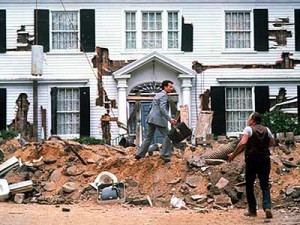
Purchasing a home while in the military is easy.
The VA will help you get a loan with no down payment. Realtors will show you all over town and not mention anything about commission (that’s the seller’s responsibility). Overall, it’s good to be a buyer.
But before rushing into a home purchase, be mindful of these five pitfalls:
1. You will probably not break even in three to four years
Before I purchased a home, I envisioned paying my loan over three years, then selling before moving to a new base. I figured that paying a loan for three years would surely give me room to make a profit. With the VA funding fee and realtor’s commissions this is not the case.
Your realtor probably told you not to worry about commission and other fees because they are paid by the seller. So what happens when you are the seller? A real estate agent will likely charge you 5% of the selling price to sell your home. Let’s say you bought your house for $180,000. We will assume you paid cash for the VA funding fee of $3,870.00, but that is often financed. After four years with a 30 year loan at 6% interest, you would have a balance of $170,000. If you sell your home for $180,000 you’ll pay your realtor a $9,000 commission! That leaves you with $1,000 from paying down the home.
The bottom line is that you will have little room for bargaining if you try to sell your home in four years. Almost all the home owners I’ve met in the last couple years have rented their homes rather than sell them. So be prepared to own and rent your home out for the long haul.
2. Property taxes may increase if you rent your home out at the end of your assignment
Many states reduce tax rates while a home is “owner-occupied” but then increase the tax rate once the home is rented.
For instance, in South Carolina a $200K home costs about $1,200 a year in property tax. That increases to around $3,500 when the owners move out. In this scenario if you rent your home out you’ll need to account for an extra $200 per month on top of your usual mortgage, property tax, and insurance once you move and rent your home out.
3. The VA fee takes takes a year to pay off
A VA mortgage saves you money by avoiding mortgage insurance (PMI). However, the VA charges 2.15% of the purchase price to facilitate a loan. Going back to our first example, our $180,000 home has a funding fee of $3,870. Your bank will gladly roll that into your loan, but it will take the first year of payments on your home to pay it off.
4. Your home may sit empty if you can’t sell it before you PCS
Depending on the market, realtors will tell you that your home should sit on the market for at least three months once it’s empty to try and snag a buyer. Those three months are expensive. You have to pay your mortgage, insurance, property tax, plus keep the electricity and water turned on.
You always have the option to rent. But if you only want to sell, be prepared to let your home sit empty for a bit.
5. Your home may have damages you didn’t know about when you purchased
The home inspection processes should protect you from this pitfall. But I still hear about it happening. If you let something slip by when you purchase the home, a savvy buyer will likely find it when you sell. Ensure you get a good home inspection completed before you buy a home.
While I’ve listed some pitfalls, owning a home still has its advantages. Paying a home off over the years is a great way to build up a nest egg for retirement. It also provides tax incentives that will help decrease your annual tax bill. Make sure you purchase a home aware of the possible drawbacks.
